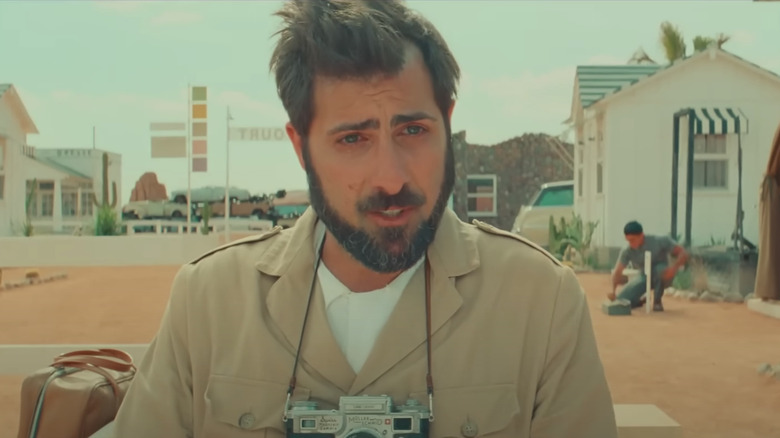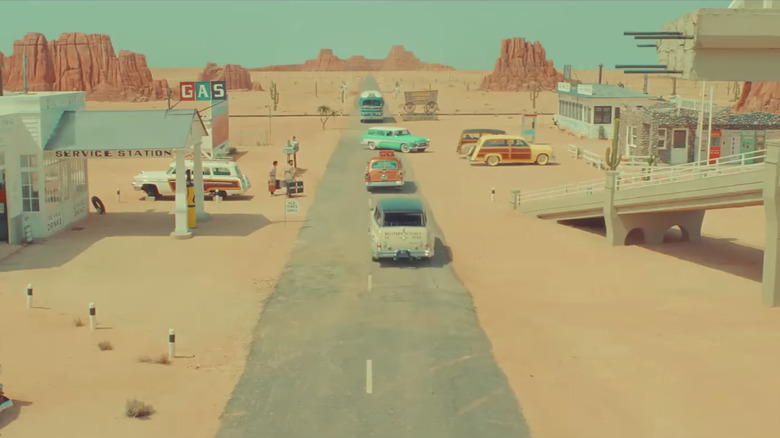Asteroid City Might Require Two Viewings, According To Wes Anderson
It's safe to say that Wes Anderson has one of the most distinctive styles in all of Hollywood, with many of his films being instantly recognizable through their vibrant color palette, symmetrical framing, and enormous ensembles of eccentric characters. His latest project, a science fiction romantic comedy-drama titled "Asteroid City," checks off all of these boxes and more — with early reviews for the film suggesting it might be the most whimsical (and weird) Wes Anderson picture yet.
As such, it should come as no surprise that the director himself has suggested "Asteroid City" might require multiple viewings in order to fully appreciate all that this dense science fiction tale has to offer. "You make a movie and at first it gets whatever reaction it gets, and that's just what it is. But in time, some of the movies have a different kind of life; they sort of go off on their own and people rediscover them, or not," Anderson explained during an interview at the Cannes Film Festival (via AP News). "I have a funny feeling that this movie might be one that benefits from seeing it twice." Anderson went on to explain that "Asteroid City" might be a movie you watch once to "get the whole idea of it," and watch a second time simply to experience the film.
Although Anderson 's comments make it clear that "Asteroid City" is a film that benefits from multiple viewings, he clarified that it's not required in order to enjoy the film, and that nobody ever sets out to make a movie you have to watch twice in order to love.
True to Anderson's word, some reviewers were not thrilled by their first viewing
Perhaps part of the reason for Wes Anderson's suggestion is the fact that "Asteroid City" is an incredibly dense movie from start to finish, particularly due to the film's heavily stylized and complex narrative structure –- presenting the story through a fictional television program about a stage play within another play.
Early reviews for the film have expressed mixed feelings about the film's thickly layered narrative, especially when coupled with the inherently fantastical nature of its style, setting, and characters. Owen Gleibermen of Variety was particularly critical of the film, calling it "the filmmakers most hyperactive yet coyly obtuse piece of storytelling," and claimed that the film was made for "Anderson die-hards only." Writing for The Hollywood Reporter, critic David Rooney said that the film's star-studded ensemble cast was "marooned in cloying Wes Anderson whimsy," and claimed that the narrative framing device was "over-complicated" and more clever than it was enjoyable.
While many more reviewers were overwhelmingly positive about the style and story of "Asteroid City," most seemed to agree that there is a lot going on in this film — combining meditations on grief with alien encounters, fake behind-the-scenes television drama, an off-the-rails Junior Stargazer convention, and much more. Regardless of how audiences might feel after their initial viewing of "Asteroid City," Wes Anderson might be right in suggesting that a second viewing is needed to take in all this story has to offer.

